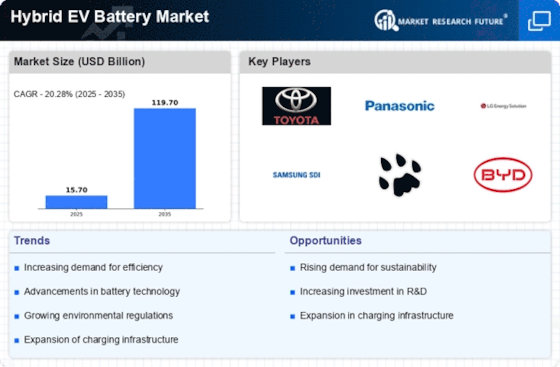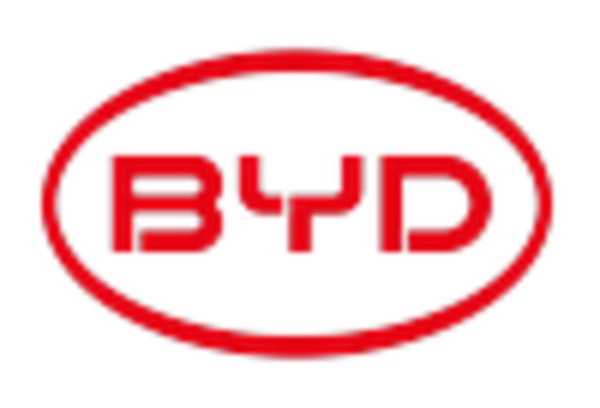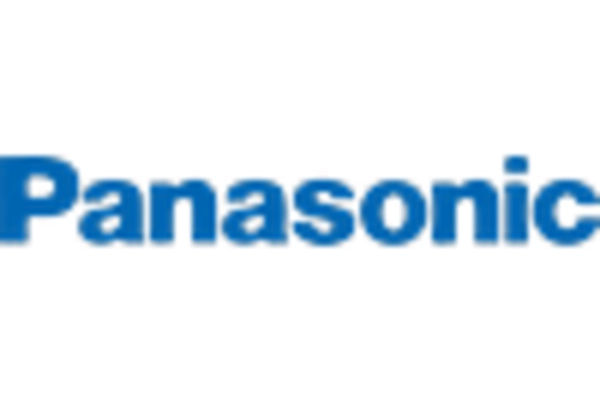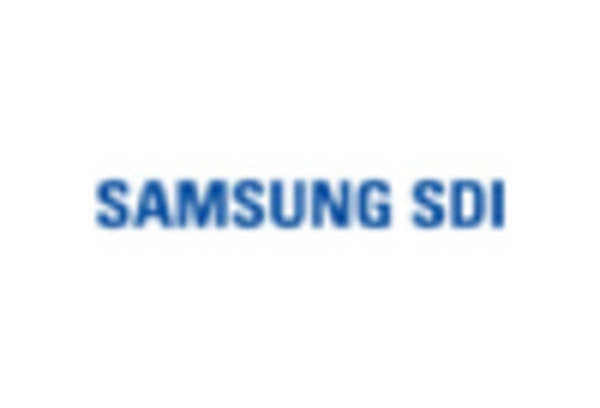Market Trends
Key Emerging Trends in the Hybrid EV Battery Market
The hybrid electric vehicle (HEV) battery market is currently experiencing noteworthy trends that signify the ongoing evolution of the automotive industry towards greener and more sustainable transportation solutions. One key trend is the increasing demand for high-capacity and long-range batteries in hybrid electric vehicles. As the automotive sector embraces electrification, there is a growing emphasis on enhancing the efficiency and driving range of hybrid vehicles. This trend is driving advancements in battery technology, with manufacturers focusing on developing batteries with higher energy density and improved performance to meet the evolving expectations of consumers. Secondly, solid state batteries for hybrid electric vehicles have also positively emerged as one of the most rapidly developing and adopted market trends. Solid-state batteries have benefits, which consist of enhanced energy thicknesses, quicker charging times and better safety when compared to essential li’ ion batteries. The quest for solid-state battery technology is motivated by the longing and concerted effort of the industry to leap beyond the current limitations of modern batteries and million miles in order to achieve more advanced energy storage materials that can serve as hybrids. This pattern also coincides with the overall objective of promoting competitive hybrids by ensuring they are proficient and enduring. The major trend molding the market is cost decrease of hybrid electric motive force batteries. The high cost of batteries has been one main aspect that has restricted hybrid cars from becoming popular on overarching scale. But technology as a part of ongoing research continue to provide scale economies in addition with increasing efficiency in manufacturing process that translates to a reduction in the costs of batteries day after day. This pattern is making the hybrid electric vehicle more competitive in terms of economic perspectives and also attracting the different consumer markets on a wider spectrum, hence considerably improving their popularity. With the automotive sectors determines from sustainability, increasing interest in batteries with vitamin E components and means of fabrics has been observed. This trend aligns with the broader commitment to achieving a more sustainable and circular economy, where end-of-life considerations for batteries are an integral part of the design and production cycle. The market for hybrid electric vehicle batteries is also influenced by the regulatory landscape, with governments implementing policies to incentivize the adoption of low-emission vehicles. Incentives such as tax credits, rebates, and preferential treatment for hybrid vehicles contribute to the market's growth. This trend underscores the importance of regulatory support in shaping the trajectory of the hybrid electric vehicle market and driving consumer adoption.


















Leave a Comment